Boston Swordfish & Tuna Fires Current Market Basket Management!
 We are one of several suppliers of fresh seafood to Market Basket- possibly the largest. We provide a variety of wild items typically found in retail markets throughout New England, including Cod, Haddock, Scallops, swordfish and tuna. The largest volume we provide is farmed Atlantic salmon from Norway- over 30,000 pounds per week. It is a great value for Market Basket customers, and has helped us grow our business with MB over the ten years we have worked together. Tim Malley CEO Boston Sword & Tuna See More 18:57
We are one of several suppliers of fresh seafood to Market Basket- possibly the largest. We provide a variety of wild items typically found in retail markets throughout New England, including Cod, Haddock, Scallops, swordfish and tuna. The largest volume we provide is farmed Atlantic salmon from Norway- over 30,000 pounds per week. It is a great value for Market Basket customers, and has helped us grow our business with MB over the ten years we have worked together. Tim Malley CEO Boston Sword & Tuna See More 18:57

































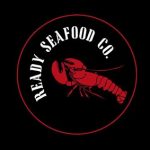
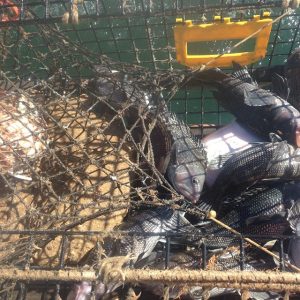
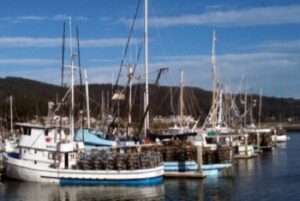
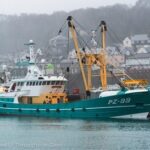
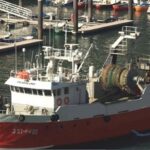




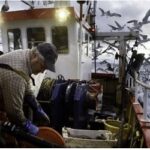






Dear Boston Sword and Tuna,
Aside from the mess regarding Market Basket, which seems to be a reprehensible case of 1%er behavior, why would you want to deal farmed Salmon anyway? Am I missing something here? Last time I looked the U.S. had a “wild caught” Salmon industry (with record landings this year).
As far as “great value” and “affordable”? How much is good health worth?
One pound of fresh or fresh/frozen “wild caught” Alaskan Salmon is
worth ten (or 20 maybe?) pounds of antibiotic and (for pen raised Salmon in sea lice infested waters) pesticide ridden farmed Salmon. Even in post card pristine Norwegian Fjords there are sea lice. In fact, best to stay away from any “farm raised” product, altogether. Monsanto is busy spending millions pushing a GMO Soy fish feed and a GMO Flax Seed plant—for Omega-3 that doesn’t occur “naturally” in “farm raised” fish unless, of course, you feed them 6x their weight in fresh “forage fish”.
Better to eat local Haddock, Cod, and Yellowtail; or if that’s not
“affordable” or enough of a “great value” then Squid, Whiting, and Scup are always available. Why not try marketing some of those “affordable” and plentiful “great value” local fish?
But dealing 30,000Lbs/week of farmed imported Salmon?
Does “affordable” justify contaminated and toxic and killing domestic fishing operations and jobs?
When just about any fish business, but namely an investment intensive aquaculture or a “vertically integrated” factory catcher-processor operation, is owned by a “market capitalized” corporation or conglomerate and run by a Wall Street oriented CEO and Board, with not much else than shareholder quarterly profits in mind, you can expect inferior product, all kinds of political chicanery, and certainly merger and acquisition maneuvers, “tax-inversion” domestic plant closures, and often downright criminal financial espionage— Wall Street style.
These market-based corporate schemes are bad for the general economy, bad for local fishermen, bad for the fish consuming public, and bad for the fish.
The Wall Street profiteering approach does not work for fishing. Fishing is way too marginal and capricious to guarantee anything—especially profit. But when profit is not imminent, corporate administrators scramble to cut this or that in order to quickly shore up at least the appearance of profitability before stock value plummets. The purpose of a market-capitalized corporation is to avoid taxes, protect the administrators, and to afford investors anonymity and some degree of peace of mind—oh yes, and to make everyone rich as possible as soon as possible.
It’s usually quality of product that suffers first under such a scheme, a system that needs to guarantee its very existence by showing profit and promise every 3 months. But quality of product needs to be pursued first and foremost in the fishing industry—not the constancy of shareholder profits or sheer volume of “affordable”.
And aquaculture is a fine example of this big business strategy of own and control the resource, enjoy a huge profit windfall, and then get out quick (usually with government grants and/or subsidized funds) before the roof caves in.
Aquaculture clearly is nothing more than another manifestation of the fallacious and disastrous Milton Friedman economics of privatize and profitize everything you can get away with (the world’s protein supply is a prime target). It’s a scam that has most of the world’s economies wheezing and its workers starving.
With most of the domestic U.S. fisheries withering from ridiculous regulations and from a small-business-killing resource privatizing and “consolidating” “market-based solutions” regulatory scheme called catch shares (in reality an ITQ program); and with 90% of our seafood imported, and most fishing operations and their ports hanging by a thread…Forget Norwegian Salmon!
Stick to dealing Fresh Domestic Fish, Please! We need reputable dealers who understand the larger picture.
“Respect the People Who Feed You”—and The People Who Supply You!